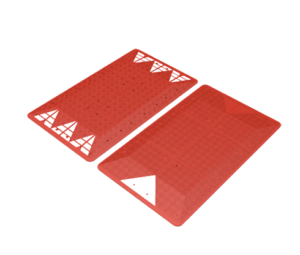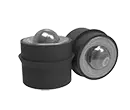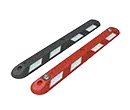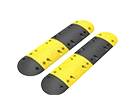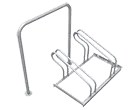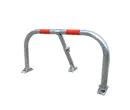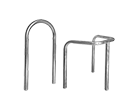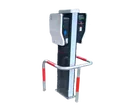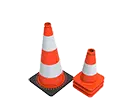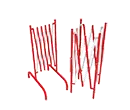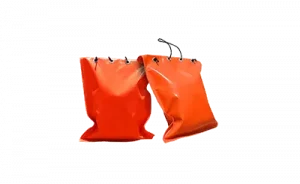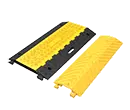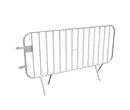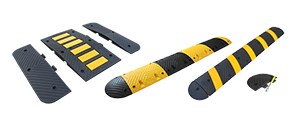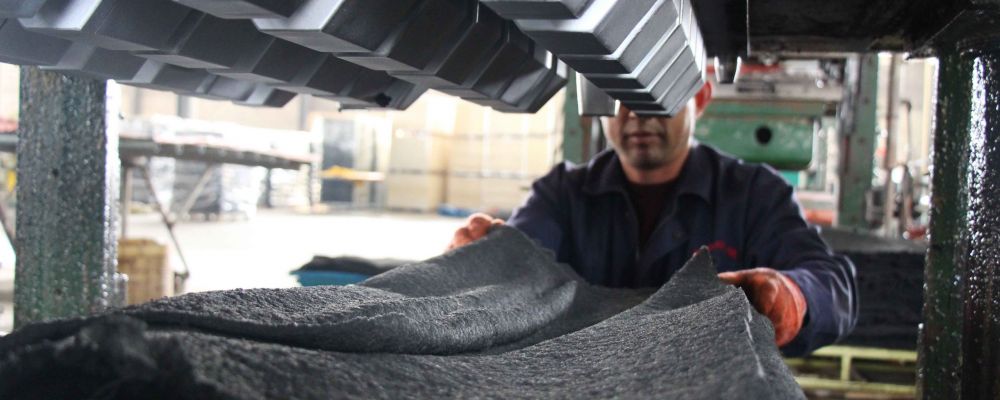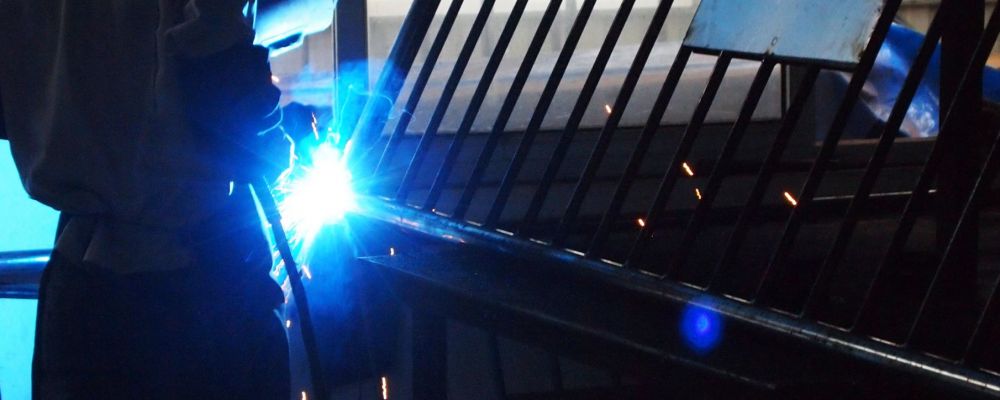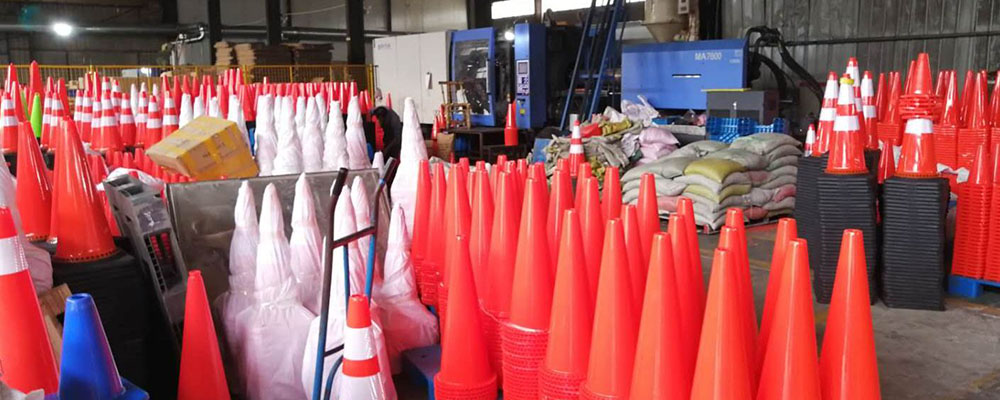What is the role of speed bumps?
Imagine you’re crossing a street, and you spot a speeding vehicle coming your way. The high speed makes you anxious about whether you’ll make it or not. Thankfully, there is an adequate decline in the speed due to a miracle that allows you to reach the other side just in time.
The possible miracle that nearly saved your life was a speed bump. Speed bumps are a very dominant traffic calming measures that have been around since the 1950s to ensure pedestrian safety.
Since then, they have undergone many tweaks. Initially, the basic speed bumps were made from asphalt or concrete. However, there has been a transition to rubber and plastic speed bumps over the past few decades. You can easily install these new bumps and fix them with bolts.
Moreover, several different speed breaker variants have been produced as traffic management solutions, including speed humps, ramps, speed tables, chicanes, and speed cushions. These are similar to the initial design of speed bumps with changes in height and width.
We also have an article to discuss everything about speed bumps.
The basic role of speed bump is identified in the above scenario, i.e., to ensure pedestrian safety. Without further ado, let’s delve into the greater general details of the purpose of speed bumps.
Do you want to know more about this topic? We also have an article to discuss everything about speed bumps.
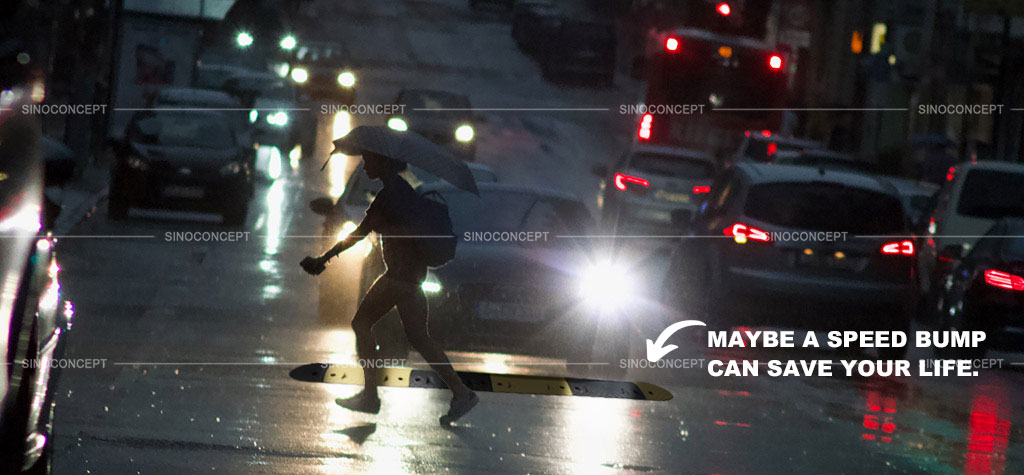
Purpose of speed bumps
Speed bumps are growing popular around the world. According to a source, the number of speed bumps in the UK has grown to around 42,000.
The sole purpose of speed bumps is to reduce traffic in areas with a high turnaround of pedestrians, like schools, parking lots, roundabouts, city streets, and pedestrian zones.
Even in the 20th century, when there were carriages, rails, and fairly new automobiles, speed bumps ensured that pedestrian safety was at its finest.
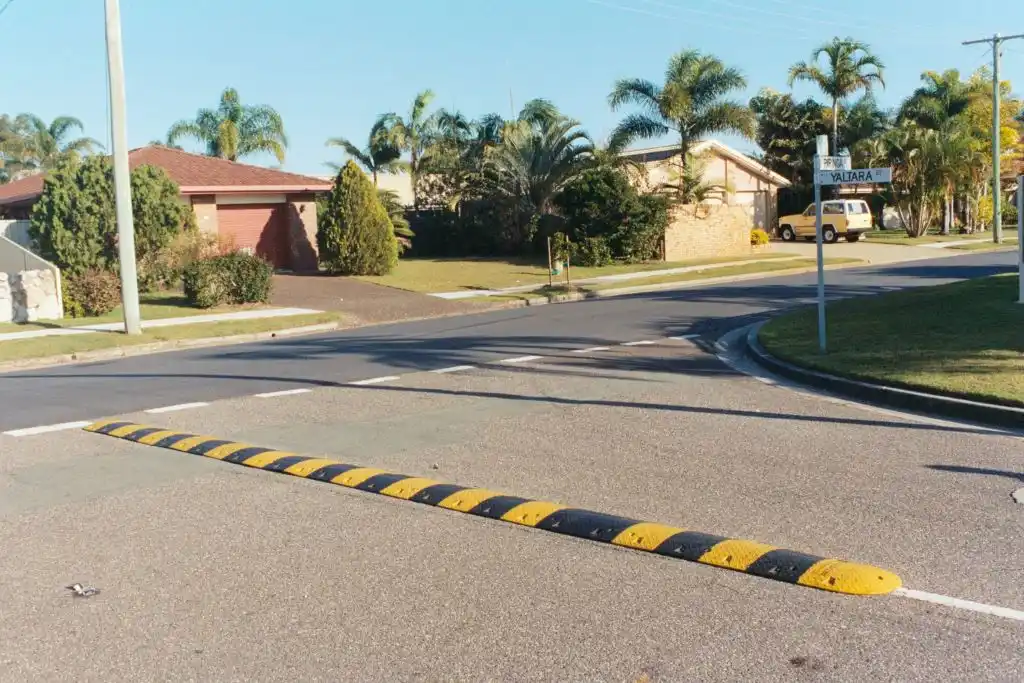
If you’d like to know the importance of speed bumps, feel free to check here: Why are speed bumps important?
There was a decline in fatalities and accidents because these speed bumps were there to reduce the dynamic speed of the vehicles. You must have seen motorists going too fast in residential, and there are general impediments that they can hurt someone through crashes or collisions.
Fortunately, these speed bumps act as vehicle barriers and discourage motorists from riding fast. Speed bumps can also help in controlling the traffic flow. Let’s dive more into their specific pros and cons.
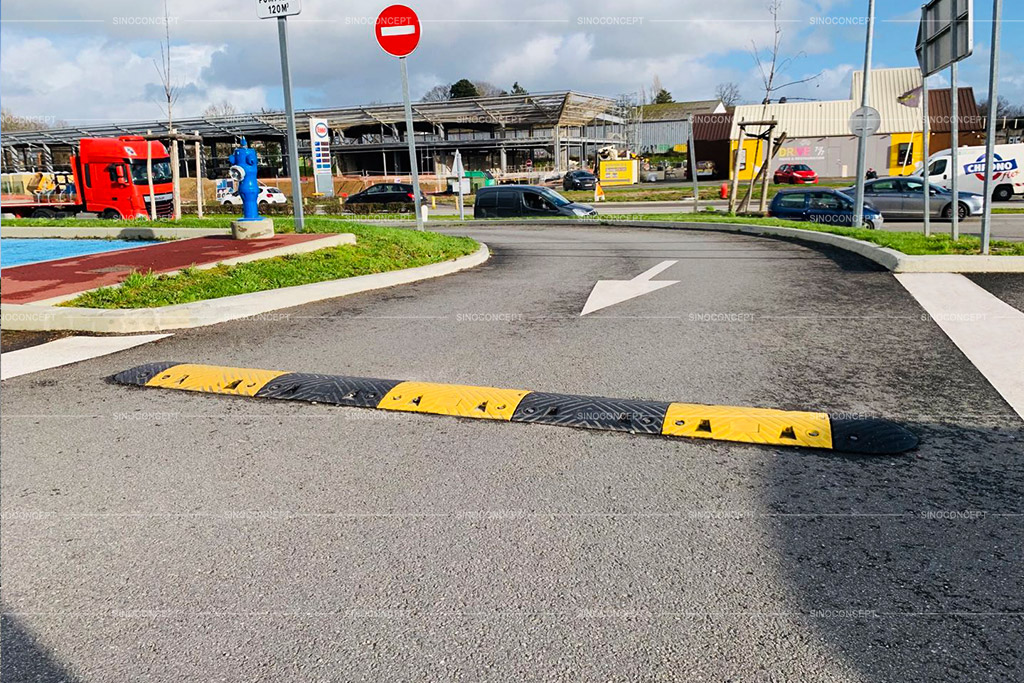
Learn more: Purpose of speed bumps.
Pros and cons of speed bumps
As it appears, every innovation has its fair share of drawbacks. Therefore, speed bumps also have several disadvantages, which can cause an uproar among several stakeholders.
Undoubtedly, speed bumps have been a great invention, and their implementation has helped the transportation department control traffic.
Despite the cons, transportation engineers are always open to criticism. They are designing new variants of these traffic control devices, which resolve most people’s problems.
There are plenty of contentions and support for speed bumps. Let’s briefly look over the pros and cons of speed bumps.
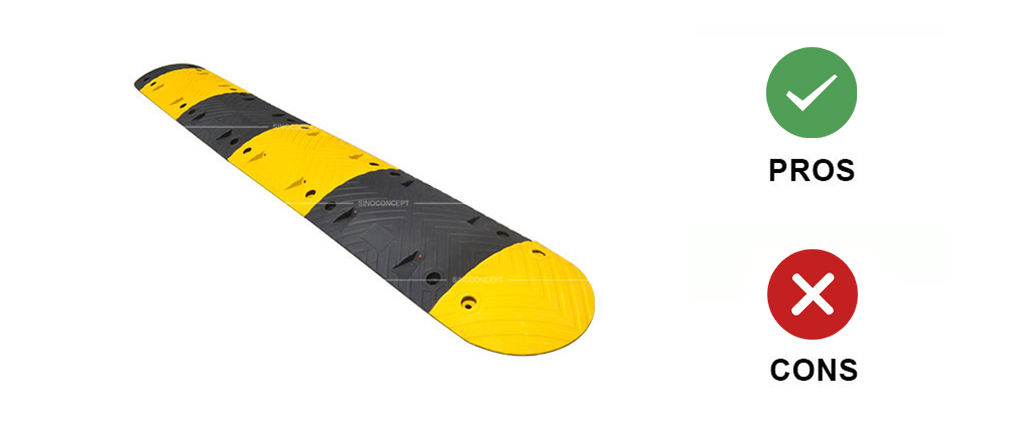
Learn more: Pros and cons of speed bumps.
Pros of speed bumps
See below the advantages of speed bumps:
- The prime benefit, which also serves as a purpose of speed bumps, is to slow down vehicles. According to one study, a conclusion was drawn stating that speed bumps have successfully reduced vehicle speed.
As a result, there was an increase in pedestrian safety. Most commonly, there are hit-and-run cases in many municipalities, which endanger safety. The implementation of speed bumps avoids accidents and plays a role in saving lives.
- Speed bumps also regulate traffic and help to create a diversion. This can avoid congestion and discomfort on roads and divert traffic to less busy places.
Therefore, speed bumps are important tools for traffic authorities and enforcement because reducing the traffic volume will enable the smooth functioning of traffic.
- Since rubber and plastic speed bumps can come in many shapes, you can place them according to your road’s requirements and dimensions. As a result, it can deliver the maximum benefits of reducing speed.
- These calming techniques have flashing colours that make them visible. Therefore, it allows drivers to spot them from a distance and ensure traffic speed control.
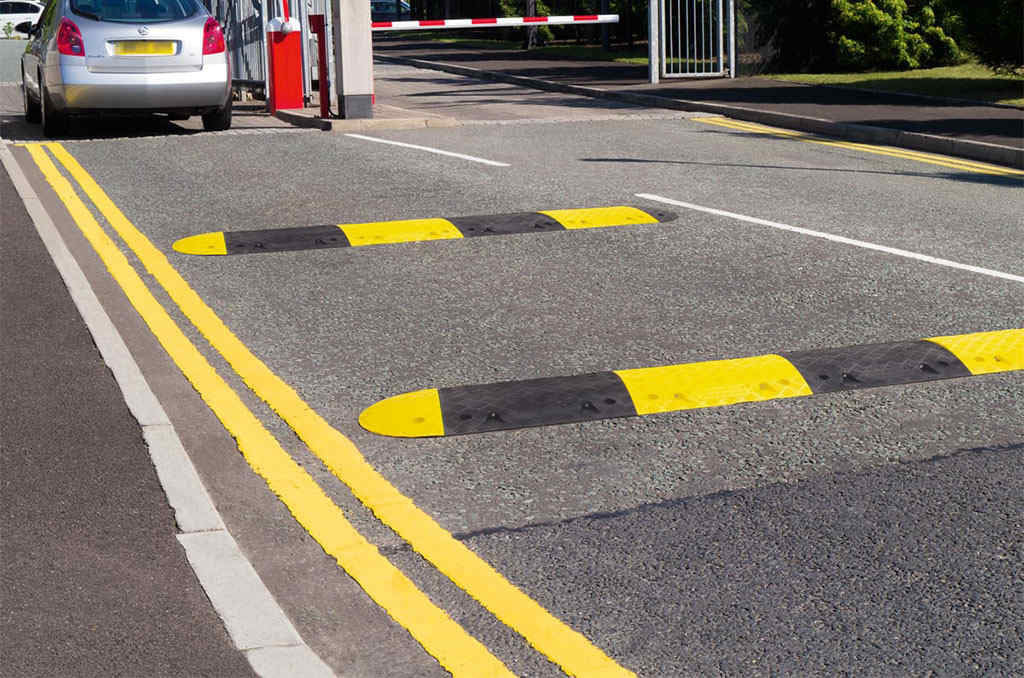
Learn more: Top 5 benefits of speed bumps.
Cons of speed bumps
See below the disadvantages of speed bumps:
- Suppose you’re travelling and you hear a screeching sound from your vehicle. You stop for a second and analyze the situation, only to spot a speed bump that can potentially harm your vehicle. Many drivers complain that high-density speed bumps can cause vehicle wear and tear. We also have an article detailing whether a speed bump can damage a car.
- Suppose you’re peacefully sleeping in your home and hear constant loud traffic noises from the road. It’ll disturb your sleep, and you might get late for work. Speed bumps can cause traffic noise, which can disturb property owners.
- Imagine you’re travelling and spot large speed bumps in the road ahead. Most commonly, you might want to take another route. However, this can be a con for traffic enforcement because it can create traffic disruption patterns.
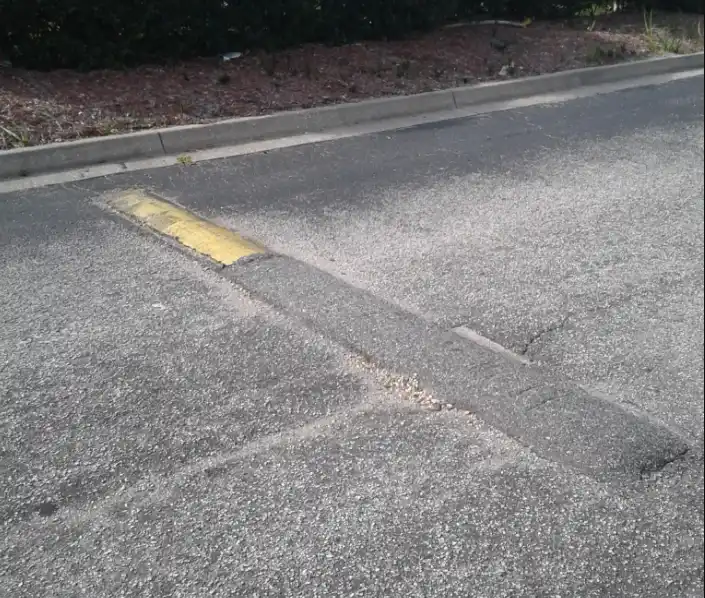
Learn more: 5 essential problems with speed bumps!
Regulations of speed bumps
Now that you’re fascinated with the amazing benefits of speed bumps, you might want to install one in your neighbourhood to protect your kids, pets, parents, and society.
Well, that’s not going to be easy because there are several regulations regarding speed bumps.
You must follow the Highway (Road Humps) 1999 regulation which sets out the minimum standards for installing speed bumps. Some of the general requirements are as follows:
- Firstly, you’ll have to ask permission from the relevant parties, including your area’s chief officer and local council.
This is done to ensure that the area where you plan to install the speed bumps doesn’t disrupt the operations of emergency wheelbase vehicles, including busses, ambulances, and fire trucks.
Besides, you might want to ask your neighbours for permission for a private speed bump.
- You have to follow certain dimensions and design rules. As a rule of thumb, speed bumps should be at least 900 mm in length, with heights varying from 25-100 mm. Also, the gradient should be in the maximum proportion of 1:10.
- There are several places and lengths where installation is prohibited. For instance, you can’t install them within 30 meters of various zebra crossings and pavement markings. Similarly, you can’t install them within 20 meters of railways and 25 meters of a bridge.
Last but not least, you can’t install them in places where the speed limit is higher than 30 miles per hour (mph).
- You must ensure that there are adequate awareness signs for speed bumps. For example, lightning is compulsory when the speed limit exceeds 20 mph. There can be various signages regarding their presence ahead, including stop signs, speed limits, speed signs, and hazards.
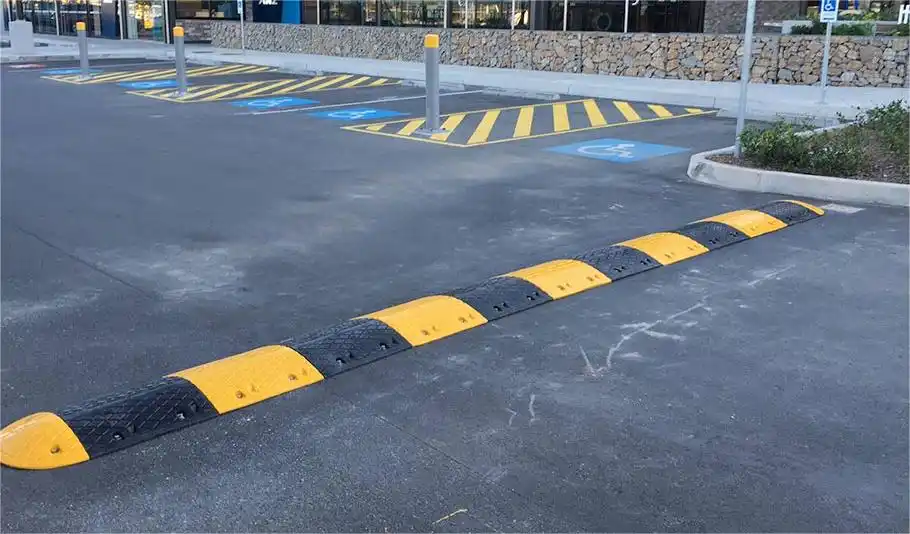
Are there any alternatives to speed bumps?
The use of speed bumps is growing rapidly. Many homeowners are now planning to get private speed bumps for their driveways.
As you know, technology never stops, and there can be continuous innovation in traffic management systems. Some of the alternatives or futuristic traffic systems include:
- There has been greater use of dynamic traffic signal lights. These are connected to a server and aim at diverting traffic flow. These speed reduction measures are growing common in roadways and neighbourhoods, ensuring highway safety.
- Speed bars are evenly spaced lines on the road, making the driver feel that they are accelerating. Therefore, it makes them reduce the speed of vehicles. This is quite a great technique and alternative to the predominant speed bumps.
- LED stop signs are a type of signage that aims to increase drivers’ awareness. They are highly visible and can be aware of the impediments of driving fast and going higher than the speed limit.
- Electronic tickets are another type of law enforcement system. It aims at giving fines to speeding vehicles. An LED light captures the speed and measures it. If it’s higher than the limit, there will be a speeding ticket or fine for the driver if they don’t slow down within a stipulated time.

Conclusion
The role of speed bumps is clear, and they are a necessity for traffic enforcement.
Many authorities, such as the Federal Highway Administration, Intelligent transport systems, and the transportation department, are passing ordinances and are already implementing them in various jurisdictions to ensure pedestrian safety.
Speed bumps are commonly used along with other measures like curbs, sideways, alleys, crossings, and bollards to maximize safety.
There is a growing trend of them, and many people choose them for their streets. Do you also want to have peace of mind and eliminate all the possibilities of endless road injuries?
It’s time you get a speed bump near your crosswalks or sidewalks. Sino Concept can help you find suitable rubber speed bumps that effectively serve your needs.
Get yours now!
To learn more, we advise you to refer to the following pages:

